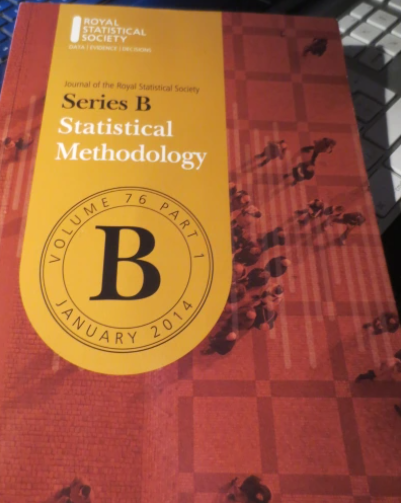Doubly robust calibration of prediction sets under covariate shift.
IF 3.6
1区 数学
Q1 STATISTICS & PROBABILITY
Journal of the Royal Statistical Society Series B-Statistical Methodology
Pub Date : 2024-03-04
eCollection Date: 2024-09-01
DOI:10.1093/jrsssb/qkae009
引用次数: 0
Abstract
Conformal prediction has received tremendous attention in recent years and has offered new solutions to problems in missing data and causal inference; yet these advances have not leveraged modern semi-parametric efficiency theory for more efficient uncertainty quantification. We consider the problem of obtaining well-calibrated prediction regions that can data adaptively account for a shift in the distribution of covariates between training and test data. Under a covariate shift assumption analogous to the standard missing at random assumption, we propose a general framework based on efficient influence functions to construct well-calibrated prediction regions for the unobserved outcome in the test sample without compromising coverage.
协变量偏移下预测集的双稳健校准。
近年来,共形预测受到了极大的关注,并为缺失数据和因果推理问题提供了新的解决方案;然而,这些进展并没有利用现代半参数效率理论来实现更有效的不确定性量化。我们考虑的问题是,如何获得校准良好的预测区域,并能自适应地考虑训练数据和测试数据之间协变量分布的变化。在类似于标准随机缺失假设的协变量偏移假设下,我们提出了一个基于高效影响函数的通用框架,在不影响覆盖率的情况下,为测试样本中未观察到的结果构建校准良好的预测区域。
本文章由计算机程序翻译,如有差异,请以英文原文为准。
求助全文
约1分钟内获得全文
求助全文
来源期刊
CiteScore
8.80
自引率
0.00%
发文量
83
审稿时长
>12 weeks
期刊介绍:
Series B (Statistical Methodology) aims to publish high quality papers on the methodological aspects of statistics and data science more broadly. The objective of papers should be to contribute to the understanding of statistical methodology and/or to develop and improve statistical methods; any mathematical theory should be directed towards these aims. The kinds of contribution considered include descriptions of new methods of collecting or analysing data, with the underlying theory, an indication of the scope of application and preferably a real example. Also considered are comparisons, critical evaluations and new applications of existing methods, contributions to probability theory which have a clear practical bearing (including the formulation and analysis of stochastic models), statistical computation or simulation where original methodology is involved and original contributions to the foundations of statistical science. Reviews of methodological techniques are also considered. A paper, even if correct and well presented, is likely to be rejected if it only presents straightforward special cases of previously published work, if it is of mathematical interest only, if it is too long in relation to the importance of the new material that it contains or if it is dominated by computations or simulations of a routine nature.

 求助内容:
求助内容: 应助结果提醒方式:
应助结果提醒方式:


